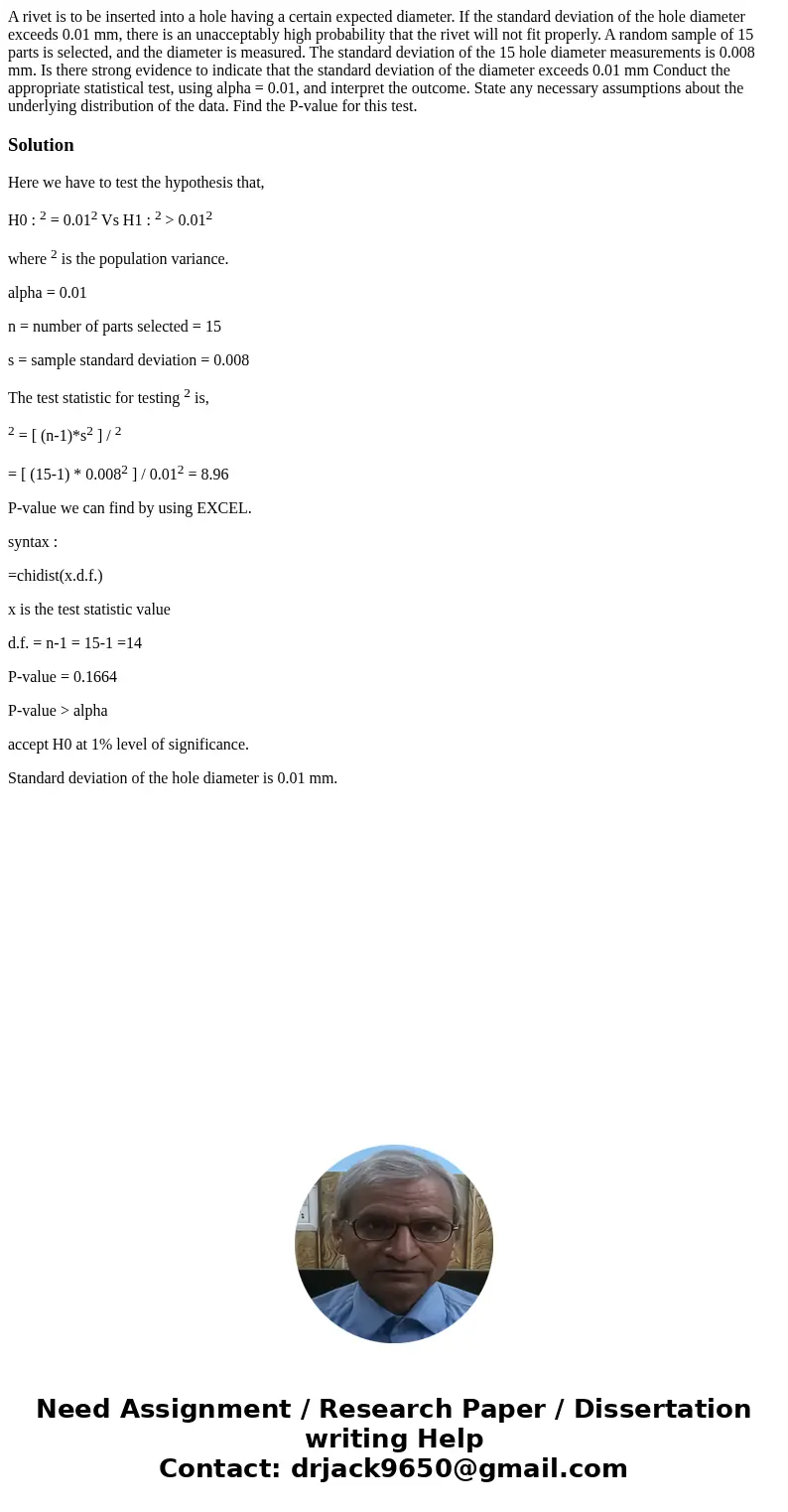A rivet is to be inserted into a hole having a certain expec
A rivet is to be inserted into a hole having a certain expected diameter. If the standard deviation of the hole diameter exceeds 0.01 mm, there is an unacceptably high probability that the rivet will not fit properly. A random sample of 15 parts is selected, and the diameter is measured. The standard deviation of the 15 hole diameter measurements is 0.008 mm. Is there strong evidence to indicate that the standard deviation of the diameter exceeds 0.01 mm Conduct the appropriate statistical test, using alpha = 0.01, and interpret the outcome. State any necessary assumptions about the underlying distribution of the data. Find the P-value for this test.
Solution
Here we have to test the hypothesis that,
H0 : 2 = 0.012 Vs H1 : 2 > 0.012
where 2 is the population variance.
alpha = 0.01
n = number of parts selected = 15
s = sample standard deviation = 0.008
The test statistic for testing 2 is,
2 = [ (n-1)*s2 ] / 2
= [ (15-1) * 0.0082 ] / 0.012 = 8.96
P-value we can find by using EXCEL.
syntax :
=chidist(x.d.f.)
x is the test statistic value
d.f. = n-1 = 15-1 =14
P-value = 0.1664
P-value > alpha
accept H0 at 1% level of significance.
Standard deviation of the hole diameter is 0.01 mm.

 Homework Sourse
Homework Sourse